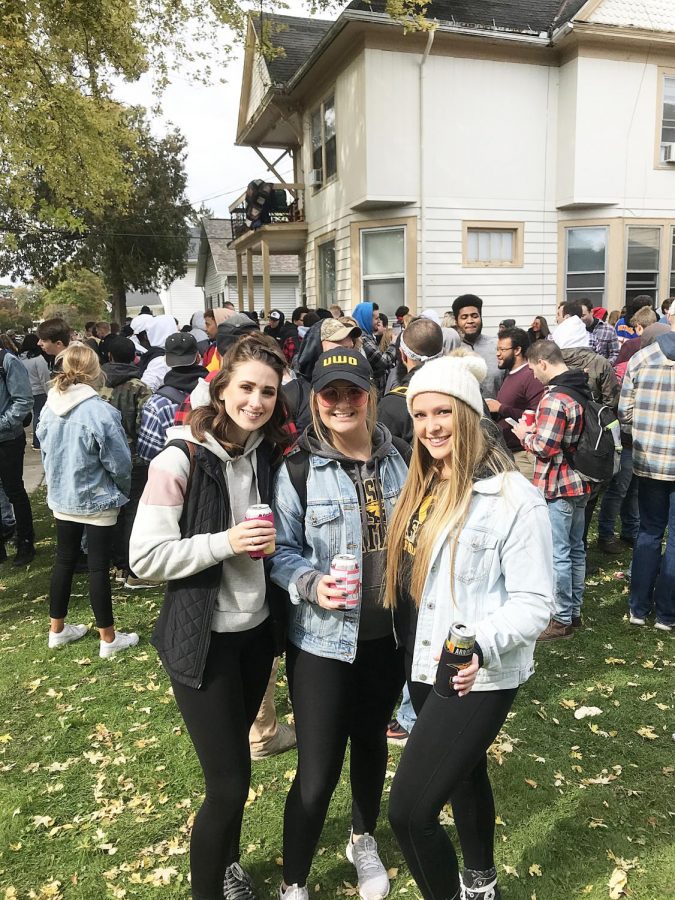Oftentimes the word activist evokes an image of mobs of protesters shouting and holding demanding signs. The Oxford dictionary defines an activist as a person who works to achieve political or social change, especially as a member of an organization with particular aims, yet, many in society hold a very specific image of what it looks like to be an active participant of social change. This image not only diminishes the work done by those operating outside of the stereotypical activist role, but also has the potential to decrease participation by individuals turned off by stereotypical activist behavior. Assumptions of activist behavior are often fueled by cultural admiration of the extroverted personality. Extroversion is an enormously appealing personality style, but weve turned it into an oppressive standard to which most of us feel we must conform, Susan Cain writes in her book titled Quiet: The Power of Introverts in a World that Cant Stop Talking. This is particularly troubling not just for those identifying as introverts, but also for the continued support of social justice issues in general. By aggressively promoting change and advocating unconventional practices, activists become associated with hostile militancy and unconventionality or eccentricity, Tom Jacobs of the Pacific Standard writes. This is not to say that protesting and other outwardly vocal methods for achieving change should be set aside. More aggressive methods are effective when utilized by people who are comfortable expressing their voices in that manner. Instead, the increased appreciation for less abrasive methods of activism coupled with existing techniques could create a more unified force when advocating for social justice. This union begins with the understanding of how introverts contribute to society. The most common misconception about introverts is that they exhibit quiet or shy behavior. This is certainly not the case. Shyness is the fear of social disapproval or humiliation, while introversion is a preference for environments that are not over stimulating, Susan Cain states. Many introverts are actually very outspoken when it comes to voicing their opinions about topics that they are passionate about. Id say Im an introvert, and I am quiet around those I dont know well, Lawrence University student Annie Ahmed said. But, I am quite vocal in classes about social justice stuff or meetings or events. Understanding the distinction between quiet and introverted people and how they contribute to the world around them is critical. Introverts and extroverts can function at the same level in social situations, the difference, Amed explains, being that introverts need more time to recharge in solitude. Quiet people, on the other hand, have a more difficult time with social settings but posses heightened listening skills which allows them to synthesize information more effectively. A glimpse at historys social and political movements provides evidence of introverts contributions to society. In her book, Cain highlights the activism of famous introverts including Rosa Parks, Gandhi and Eleanor Roosevelt. These activists are often described as quiet and reserved. Although they didnt seek to be recognized, they often found themselves in the spotlight while creating awareness for racism, violence and poverty. The movements they were involved with simply would not have been as successful without their participation. Introverts understand that protesting isnt for them, but that doesnt quiet the anger felt by injustices. So how can introverts continue to contribute to social change without conforming to the extrovert ideal? Many programs and organizations advocating for social issues could not survive without volunteers as well as donations. I often feel as if I dont need to be another individual causing havoc in a mob, blocking a highway or picketing throughout the city, Northeastern Illinois University student Daisy Saenz said. The fact that I hold the same opinion as them should be good enough to begin with, but I can definitely volunteer more. Saenz also advises boycotting companies who participate in oppressive business practices, and wearing apparel to advertise a personal stance on a particular issue. Other forms of activism include writing or blogging as well as the use of social media to increase awareness and garner support. The power of introverted activism is something to be admired and appreciated. It is something to be proud of because behind every outspoken leader inspiring action is an introverted leader providing the words that promise to inspire compassion.
Categories:
Activists come in many shades
April 22, 2015
0







